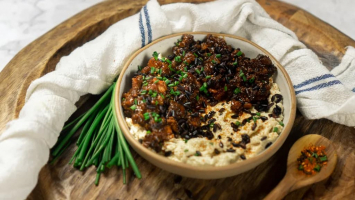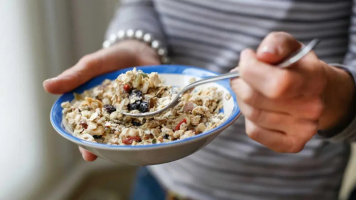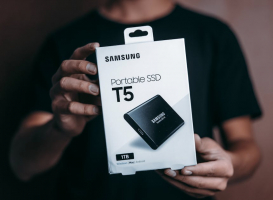Top 10 Best Ways to Stop Overeating
Common behaviors that are difficult to overcome include eating too much in one sitting or consuming too many calories throughout the day. While some people ... read more...regard these behaviors as habits that can be overcome, others may see them as signs of an eating disorder. Overeating can result in weight gain and increase the risk of developing a chronic illness such as diabetes or heart disease. Below are some of the best suggestions to stop overeating that you can refer to!
-
People often do other things while eating. Many people, on the other hand, overeat because they don't pay enough attention to what they're eating. Distracted eating, according to a 2013 review of 24 research, can lead to an increase in immediate food consumption. Keeping distractions to a minimum at mealtimes allows the body to concentrate on the task at hand: eating.
Mindfulness focuses on helping people focus on their current feelings, emotions, and thoughts in a nonjudgmental way Mindful eating might help people avoid overeating. According to a 2014 review of 21 studies, mindful eating habits improved targeted eating behaviors including binge eating and emotional eating in 18 of them. Focus on the feelings that food makes on the tongue, how it smells and its texture to practice mindful eating. When eating, people should turn off their laptops, tablets, phones, and televisions.

Limiting distractions and practicing eating mindfully 
Limiting distractions and practicing eating mindfully -
Researchers found that those who eat slowly have a lower body mass index (BMI) and eat smaller meals, according to studies. Food satisfaction signals take 12 or more minutes to reach the brain of a thin person, but 20 or more minutes for an obese person, according to research. Eating slowly may allow your brain more time to recognize that your stomach is full and send the signal to stop.
Taking a longer time to eat may cause people to feel more full and as if they ate more than they really did. Adults who ate 400 milliliters of tomato soup slowly felt fuller after the meal than those who ate the same portion quickly, according to a 2015 research. Put the utensils down or take a few deep breaths between bites to practice eating slowly. Some people find it beneficial to use a timer to keep track of how quickly they are eating.
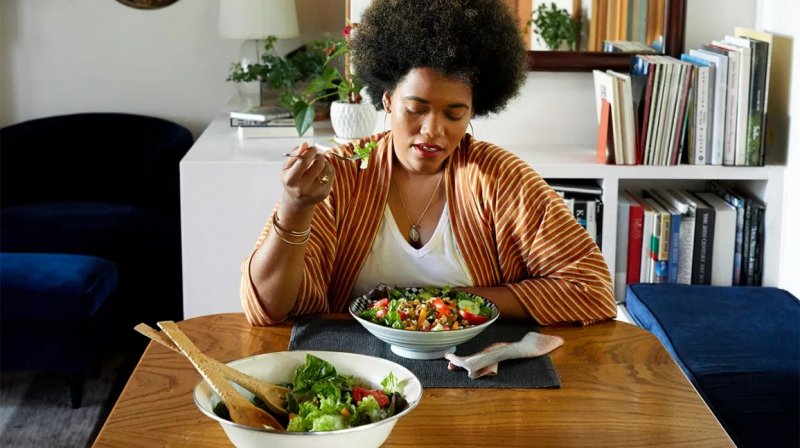
Eating slowly 
Eating slowly -
In fact, people who eat large portions on their plates unintentionally consume more calories than they need. So it is useful to know what meal sizes are healthful and how to portion out food.
To practice portion control, try the following:
- Use smaller dinnerware
- Use your plate as a portion guide: Vegetables or salad: Half a plate; High-quality protein: Quarter
of a plate; Complex carbs: Quarter of a plate, such as whole grains and starchy vegetables; High-fat foods: Half a tablespoon (7 grams), including cheese, oils and butter. - Ask for a half portion when eating out
- Start all meals with a glass of water
- Put small portions of snacks in bowls or other containers, especially when doing other activities while eating.
- ...

Eating healthful portion sizes 
Eating healthful portion sizes -
When there are unhealthy foods in the cupboards, fridge, or freezer, it's difficult to keep to a meal plan. In fact, seeing a favorite snack food in a cupboard is a common trigger for overeating.
Giving up beloved snacks or treats is an important step toward a healthier diet. It's a good idea to stop storing ice cream in the freezer if it's likely to trigger a binge or episode of overeating. Healthy snacks, such as sliced apples with peanut butter, hummus and vegetables, or homemade trail mix, might help you make healthier snack choices. Another helpful tip is to put unhealthy snack items out of sight, such as chips, candies, and cookies Clear your cupboards of tempting snack foods and, if feasible, give unopened items to charity is a good idea.
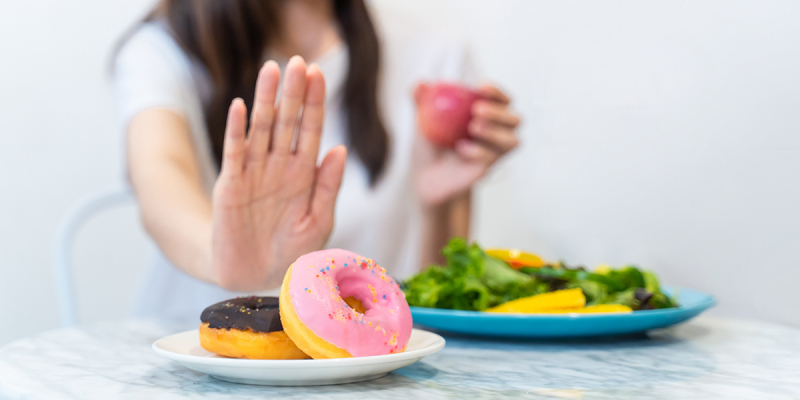
Removing temptation 
Removing temptation -
Eating both soluble and insoluble fiber, according to the Food and Drug Administration (FDA), can help people feel fuller for longer, which can help reduce overeating.
Participants who ate oatmeal for breakfast felt fuller for longer and ate less at noon than those who had cornflakes or simply water, according to a small 2015 research. Fiber is a type of plant carbohydrate that may be found in a variety of foods, such as whole grains; beans, peas, and lentils; sweet potatoes; most nuts and seeds; oats and oat bran; many whole fruits, especially berries and fruits with peels. Snacking on nuts, mixing beans into your salad, and eating vegetables at every meal can all help you eat less.
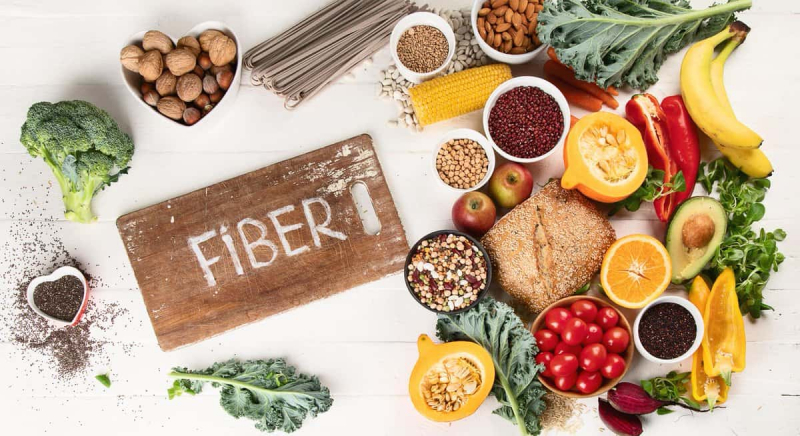
Eating fiber-filled foods 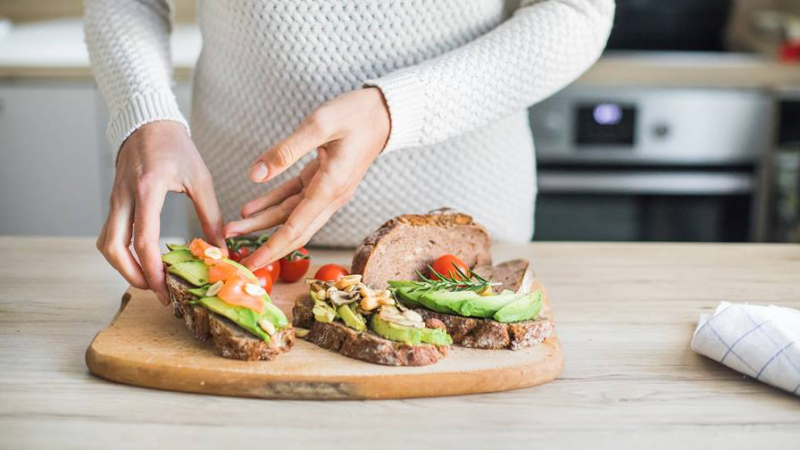
Eating fiber-filled foods -
Protein keeps your body full throughout the day and might help you avoid overeating. A high-protein breakfast, for example, has been demonstrated to lower appetite and snacking later in the day. Ghrelin, a hormone that promotes appetite, is reduced when you eat a protein-rich breakfast like eggs.
Adding higher protein snacks to your routine, like Greek yogurt, can also help you eat less during the day and keep hunger at bay. There are many healthful protein-rich snacks and meals, such as high protein yogurts and yogurt drinks, like kefir most nuts and seeds; most types of milk; most beans, peas, and lentils; fish, poultry, or lean beef; protein powders, which people can add to smoothies, shakes, or healthful baked goods.

Eating protein-rich foods 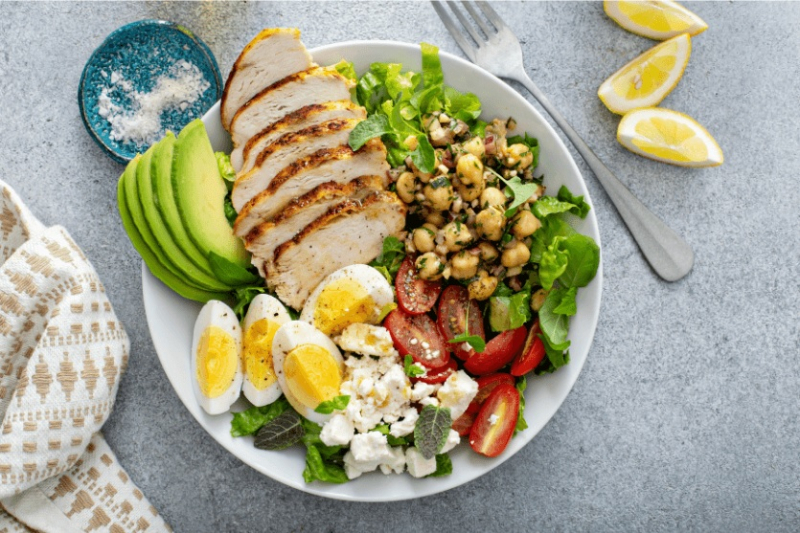
Eating protein-rich foods -
Restrictive food patterns that limit many of your favorite foods might make you feel deprived, which can lead to binge eating forbidden foods. Diets that emphasize complete, unprocessed foods are always the healthiest, but sometimes allowing yourself a treat is totally healthy.
For most people, swearing never to eat another scoop of ice cream, a slice of pizza or a piece of chocolate is impractical. However, in the case of food addiction, a person may need to permanently abstain from trigger foods forever. In this instance, finding healthy and satisfying substitutes is a smart idea. Concentrate on giving your body mostly healthy, nutritious foods while sometimes allowing yourself to enjoy a treat.

Don’t ban all favorite foods 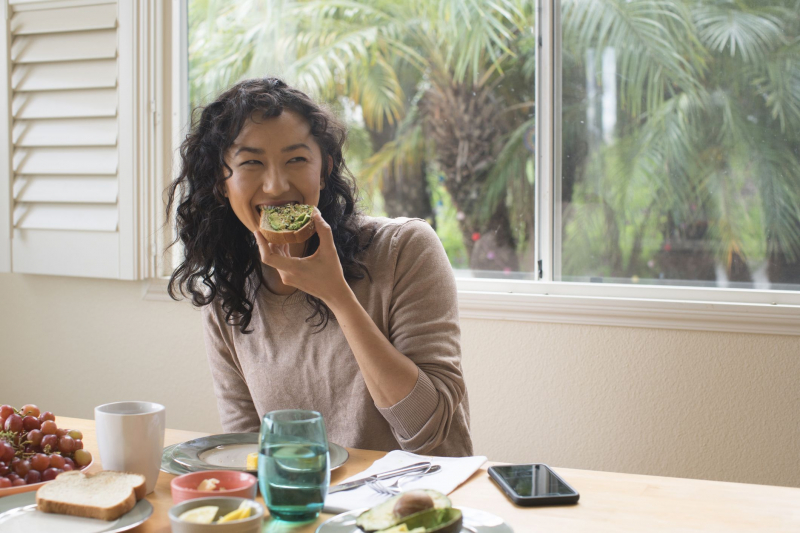
Don’t ban all favorite foods -
Using a food diary or a smartphone app to keep track of what you eat might help you avoid overeating. Many studies have shown that self-monitoring techniques such as keeping a food diary can help people lose weight.
Food tracking, according to the National Heart, Lung, and Blood Institute, helps people become more conscious of their eating habits. This understanding may make it easier for people to stick to their diet plans and lose or maintain a healthy weight. Furthermore, keeping a food journal can assist in identifying situations and emotional triggers that lead to overeating, as well as foods that are likely to cause binge eating. People can start using food tracking tools by keeping track of what they consume and when they eat it. They may track other factors, such as how much they eat and the calorie content of meals and snacks.
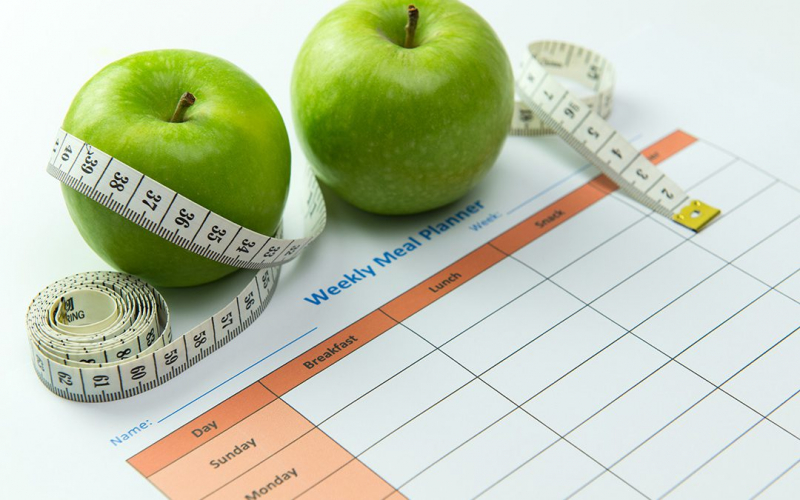
Tracking the diet 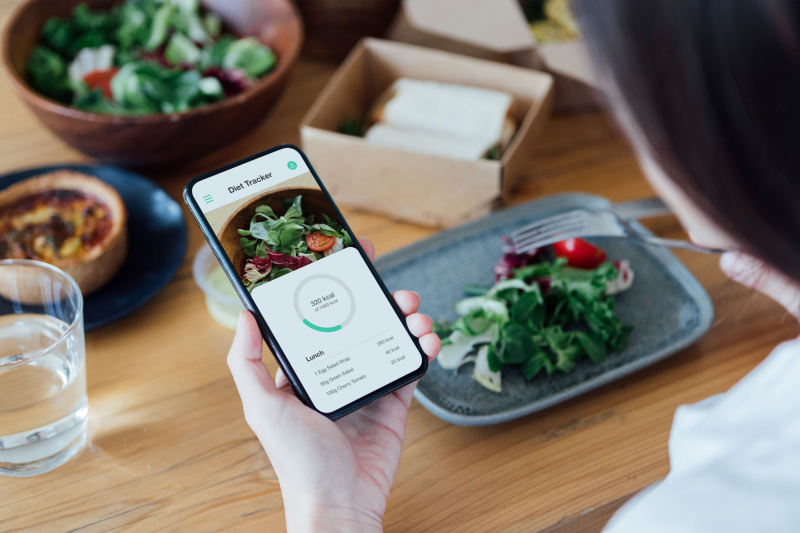
Tracking the diet -
When trying to lose weight, many people skip meals in the hopes of reducing their calorie intake. While intermittent fasting may effective in certain cases, restricting meals may drive you to eat more later in the day.
According to research, eating more often throughout the day can help to reduce hunger and overall food consumption. Some people, for example, may skip lunch in order to cut calories, only to overeat at dinner. However, having a well-balanced lunch might help you avoid overeating later in the day. Many nutritionists advise eating smaller, more frequent meals. The American Society for Nutrition, on the other hand, showed that the majority of research now supports the idea of having three structured, healthy meals at regular intervals throughout the day.
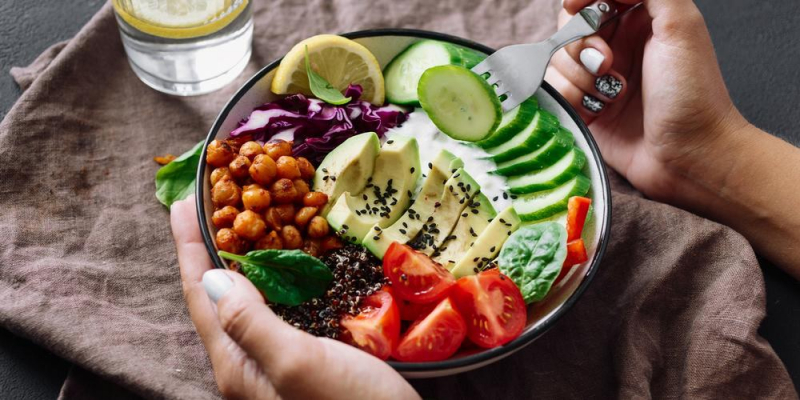
Eating regularly 
Eating regularly -
The food choices of your dining companion may have a bigger impact on your food intake than you think. People's food choices are significantly impacted by the people they eat with, according to some studies.
People tend to eat quantities that are comparable to their dining companions', therefore dining out with overeating friends may induce them to overeat as well. Furthermore, studies have shown that if one's eating companion orders unhealthy options, the person is more likely to do so. Try to eat with people who have similar eating objectives to prevent overeating. When you eat among people who are also monitoring their portion sizes, you may find that you are less tempted to overeat.

Dine with like-minded friends 
Dine with like-minded friends

















